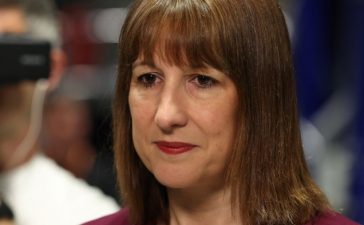The legal battle over the government’s controversial plans to send asylum seekers to Rwanda has reached the supreme court.
The Home Office is bringing a challenge after the court of appeal ruled in June that the multimillion-pound deal – under which asylum seekers would be deported to the east African nation – was unlawful.
In a three-day hearing that started on Monday five of the UK’s most senior judges will hear arguments over whether two appeal judges were right to find there was a “real risk” asylum seekers could be returned to their home country and face persecution when they may have a good asylum claim.
The Home Office is arguing that the scheme is lawful and safe for the asylum seekers whose claims will be processed in Rwanda. The UN refugee agency UNHCR is intervening in the case and 10 asylum seekers from a variety of conflict zones including Syria have challenged aspects of the ruling.
Sir James Eadie KC, for the Home Office, said: “The appeal is, at its heart, about the judgments made by government about the future conduct of a friendly foreign state – Rwanda.”
The barrister continued: “Both the government and the Rwandan government were fully aware of the likely controversy of the arrangements that were made when the deal was signed.”
Eadie told the court there was a “strong public interest” in taking steps to deter people taking the “perilous” journey across the Channel to reach the UK.
He said the government attached “considerable importance” to its Rwanda deportation policy, adding there was “a serious and pressing need to take effective steps that will act as a deterrent to those undertaking the perilous and sometimes life-threatening journey, typically across the Channel, from a safe country”.
He said such journeys were often “facilitated by people smugglers”.
The UNHCR, which has intervened in the legal challenges over the policy, previously said Rwanda “lacks irreducible minimum components of an accessible, reliable, fair and efficient asylum system”.
In the agency’s written submissions to the supreme court, Angus McCullough KC said it had “consistently expressed grave concerns” about the safety and legality of the policy.
He continued: “UNHCR maintains its unequivocal warning against the transfer of asylum seekers to Rwanda under the UK-Rwanda arrangement.”
Doctors Without Borders’ executive director, Dr Natalie Roberts, called the government’s plans to deport some asylum seekers to Rwanda as “cruel, dangerous and futile”, and said they “will cause immense suffering”.
She said: “Now, even before anyone has been expelled to Rwanda, we are already seeing the harm caused by the prospect of being removed there.
“The policy has triggered fear and confusion, exacerbating the mental health conditions – including post-traumatic stress disorder and depression – of people who have already suffered harrowing situations in their countries of origin followed by highly traumatic journeys, and who are now threatened with expulsion.
“It is abhorrent that the UK is punishing people simply for seeking safety – and at the same time shutting down the few safe routes to the country that exist.
“Ministers must abandon the Rwanda policy and instead focus on establishing routes to the UK for people fleeing conflict and persecution.”
The hearing before Lords Reed, Hodge, Lloyd-Jones, Briggs and Sales is expected to end on Wednesday, with a judgment at a later date.











